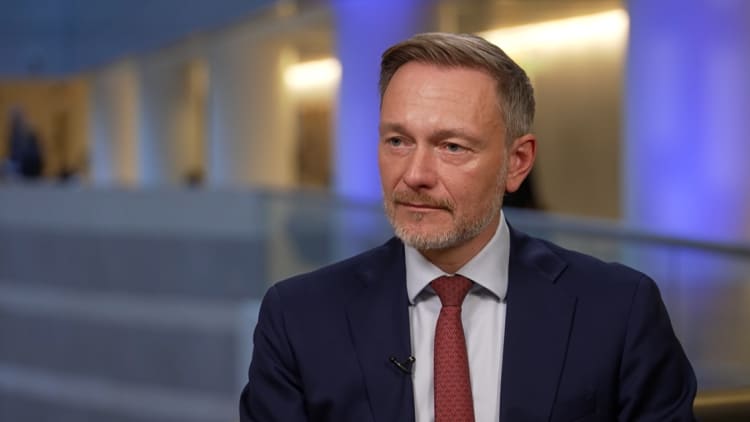The German government is on the brink of collapse – here’s what could happen now
German Finance Minister Christian Lindner, Economy and Climate Minister Robert Habeck and Chancellor Olaf Scholz attend a debate on the 2024 federal budget in the Bundestag on January 31, 2024 in Berlin, Germany.
Sean Gallup | Getty Images News | Getty Images
Germany’s ruling party has long been in limbo, amid growing divisions over economic and fiscal policies among its three member parties.
The situation worsened in recent weeks, raising concerns about the state of the 3-year coalition between Chancellor Olaf Scholz’s Social Democratic Party (SPD), the Greens and the Free Democratic Party (FDP).
There is a lot of speculation about whether the dissolution of the alliance could come as soon as this week, as the media reported discussions between representatives of the various organizations on Sunday night and early this week, before the regular meeting of partnership on Wednesday.
“German politics seems to have turned into a train wreck in slow motion. The German government has just entered a new phase of a slow-burning political crisis that may be the last step before the collapse of the bloc. rule, “Carsten Brzeski, head of the world. of macro at ING, it said in a note on Monday.
Holger Schmieding, Berenberg’s chief economist, noted that the three coalition partners are acting “as if they are preparing to campaign against each other soon.”
For example, Scholz held a meeting with industry leaders last week but did not invite his coalition partners, prompting the FDP to call its own separate meeting without the SPD.
Separately, Robert Habeck of the Green Party, who is Germany’s economy minister, proposed a strategic plan to encourage business investment that was criticized by the FDP.
Lindner’s tablet
Another development occurred on Friday, when Finance Minister Christian Lindner published a paper on revitalizing Germany’s struggling economy.
“The paper reads like a serious attempt to analyze Germany’s problems and offer solutions. However, it contradicts the basic positions of the SPD and the Greens and will therefore be difficult for them to accept,” Greg Fuzesi, a euro zone economist at JPMorgan, said in a note. Monday.

Meanwhile, Brzeski said that the content of the paper is not an issue, even if it contradicts important policies from the SPD and the Greens, but pointed out that “the tone of voice in the paper shows how cold the air is between the partners what a cold corporation they have become.”
In an interview on Sunday TV with ZDF, Lindner said the issues would be resolved, noting that this was the responsibility of his ruling partners. He avoided the question of whether he intends to leave the coalition if his proposals for the development of the country’s economy are not supported.
A highly contested standard
The most recent federal issue has been Germany’s 2025 budget – a topic that features prominently in Lindner’s paper. The budget was presented earlier this year, but left several unanswered questions about the multi-billion euro budget gap. Based on the current operational timeline, the budget should be finalized by mid-November.
The assembly now has to make difficult decisions under time pressure, Fuzesi said, against the background of different economic visions and the hole that the constitutional council drilled in Germany’s finances last year, when you decide that the government will not provide the emergency funds raised during that time. the Covid-19 pandemic to its budget.
In the meantime, Berenberg’s Schmieding suggested that “if the coalition cannot agree on the financial issues and the changes ahead for the 2025 budget, the government could collapse.”
A possible separation?
Without finding a solution to the problems, several conditions could play out that would change the structure of the German government.
One is that the FDP could leave the party, either by leaving itself or by angering Scholz enough that he asked them to leave, Schmieding of Berenberg said.
“If so, a short term SPD-Green minority government under Scholz may be followed by snap elections early next year,” he said. However, recent polls show that the FDP would get only about 3% of the vote in the federal elections, less than the 5% it would need to cross to secure seats in the German Bundestag.
The SPD and Greens would also lose in the last federal election, while the current opposition CDU party would be the most likely to gain a large share of the vote.
“By-elections are not yet a possibility, but they are possible,” Schmieding said.
ING’s Brzeski while noting that the minority government can continue until the scheduled election date later in 2025 and pointed out that, even if the FDP leaves the coalition, this will not force an early election.
This is due to the German constitution, which dictates that snap elections can only be called by the federal president if the chancellor loses a vote of no confidence in parliament.
But the coalition’s vision seems bleak, according to Brzeski.
“In general, we think that the risk of a collapse of the German government has never been higher than now. Even the political uncertainty caused by the upcoming US elections is not proved to be a sure glue to keep the government together,” he said.
#German #government #brink #collapse #heres #happen